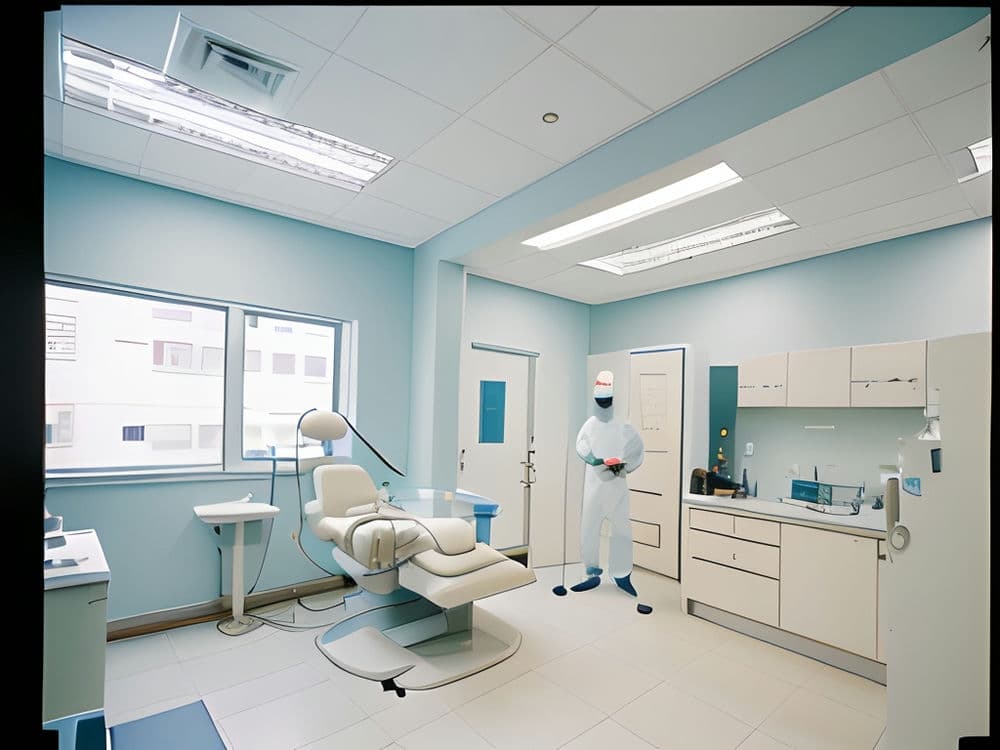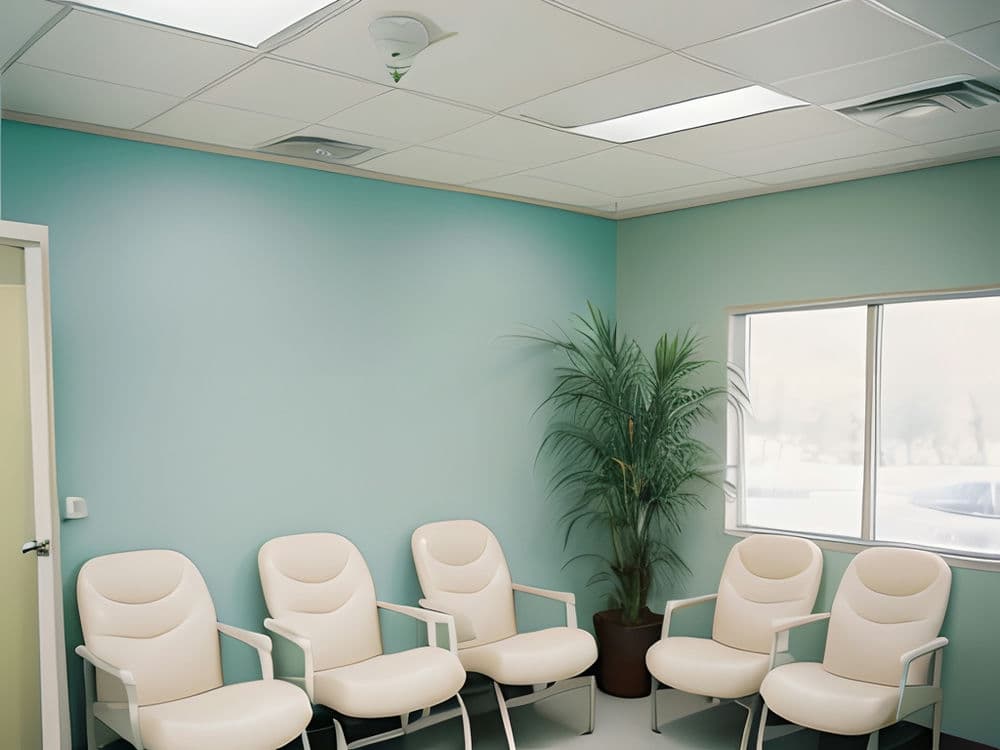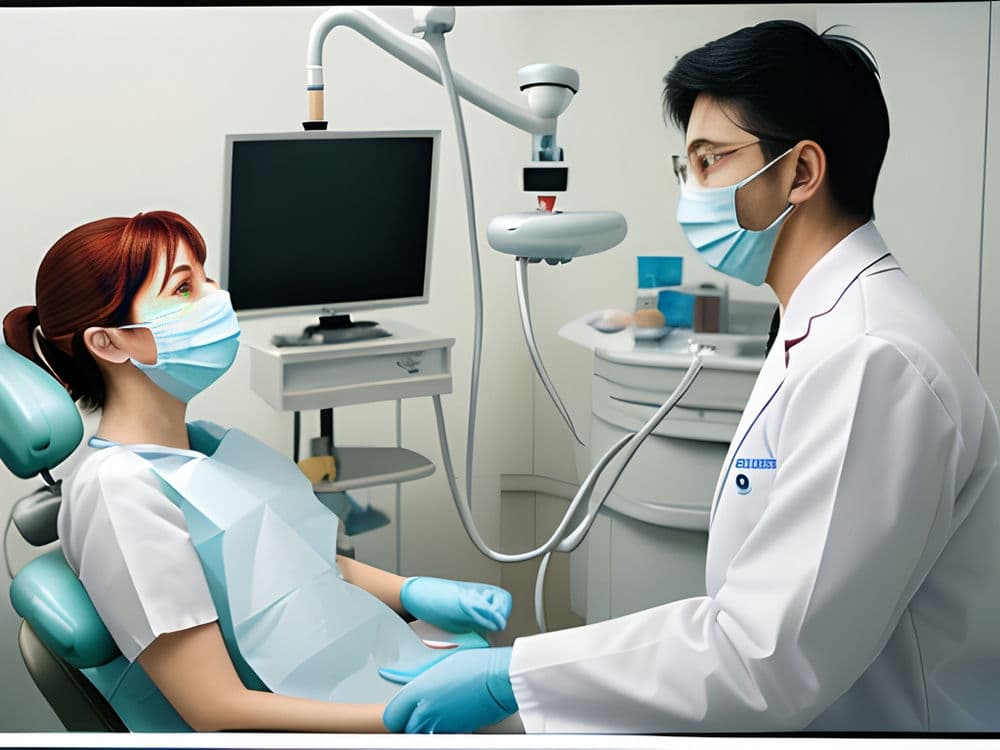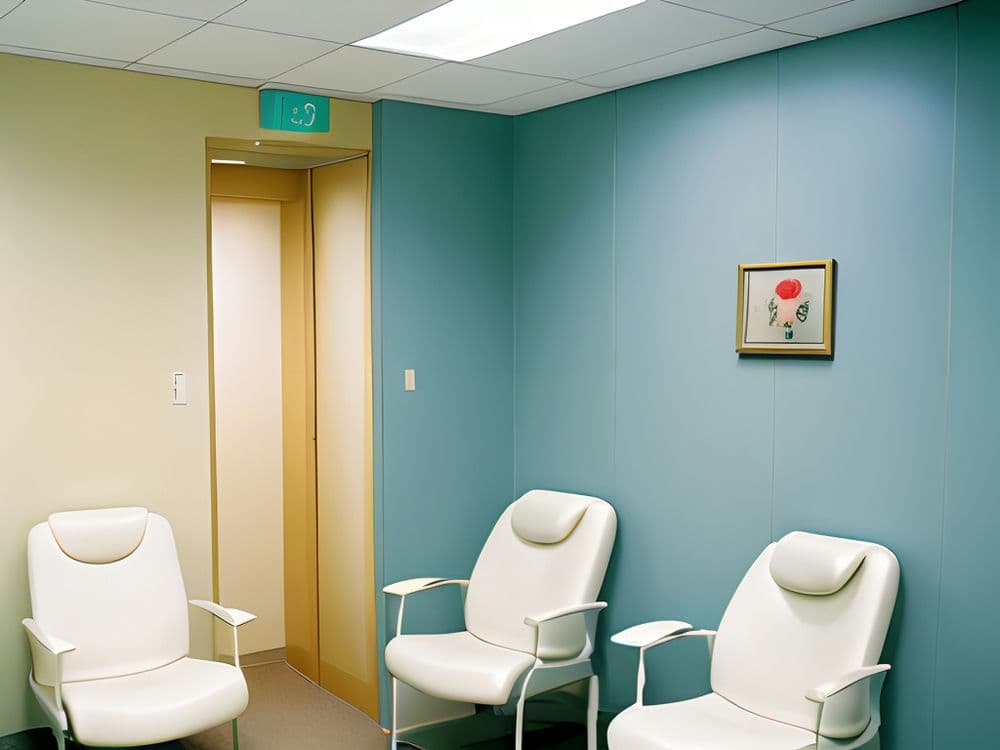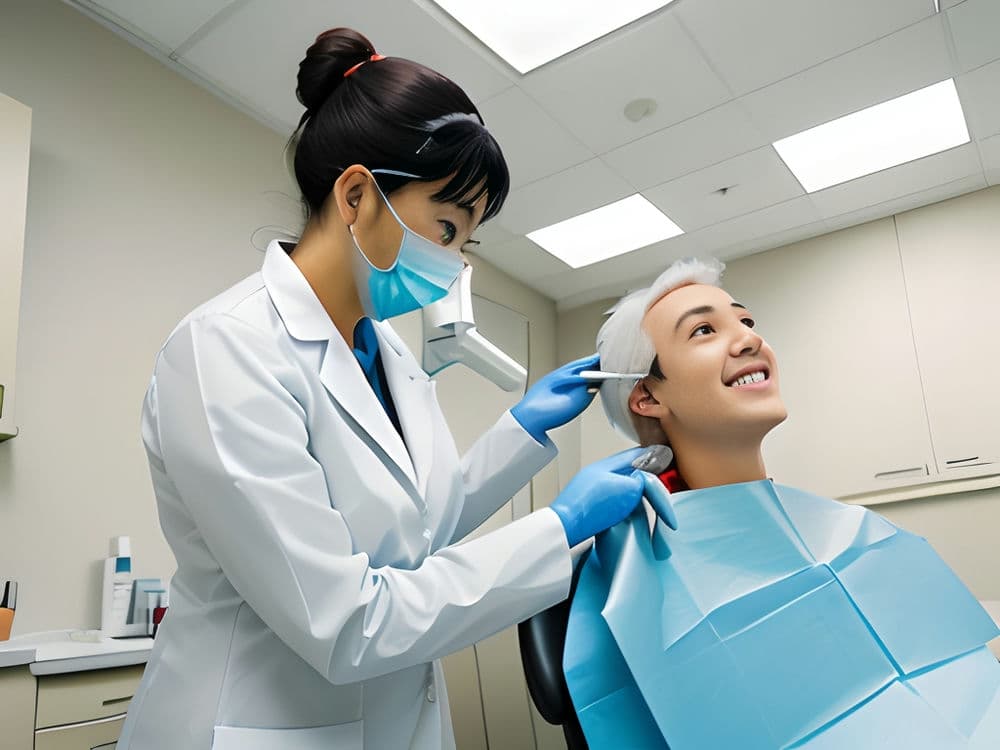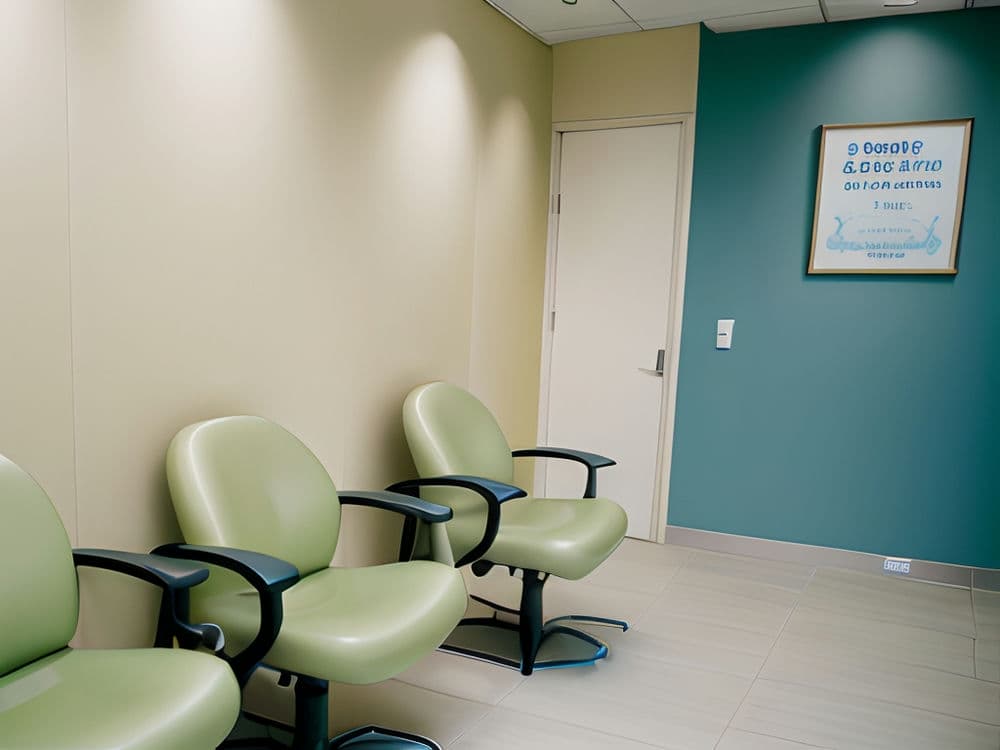Customer relationship management (CRM) software tailored for dental practices is a specialized tool designed to enhance the patient experience and improve practice management. This type of software boasts features that address the unique needs of dentists and their staff, ensuring that patients receive timely, personalized care while also streamlining administrative tasks.
Primarily, such CRM systems often include appointment scheduling capabilities. However, they transcend mere calendar functions by integrating reminders and follow-ups which are critical for maintaining patient engagement and reducing no-show rates. For instance, automated text messages or emails can be sent to patients to remind them of upcoming cleanings or treatments.
Moreover, these CRMs usually have robust patient record management. They allow for easy storage and retrieval of patient information including treatment history, personal details, and even images like X-rays or intraoral photos. This makes it easier for dental professionals to access important information quickly during consultations or treatment planning sessions.
Another key feature is treatment plan tracking. Dental CRM software enables practitioners to create customized treatment plans for each patient, monitor progress over time, and adjust as necessary based on patient response or changing oral health conditions.
Marketing tools within dental CRMs can assist practices in attracting new patients while retaining existing ones through targeted campaigns based on demographics or past visit histories. These might include email newsletters with oral health tips or special promotions for teeth whitening services.
Furthermore, feedback collection mechanisms are often built into dental CRM platforms. Practices can gather valuable insights into patient satisfaction through surveys that can be filled out post-appointment directly from the system itself—an effective way to pinpoint areas for improvement.
Finally, many systems offer financial modules that help manage billing processes more efficiently by tracking invoices, processing payments, and even submitting claims to insurance companies electronically.
In essence, CRM software tailored for dental practices offers an array of features specifically designed to optimize both clinical operations and business management aspects of running a practice—ultimately leading to enhanced patient care and increased efficiency within the workplace.
Appointment scheduling and reminders are pivotal components of dental practice management, and with the advent of Customer Relationship Management (CRM) software, these tasks have been significantly streamlined. CRM software serves as a vital tool in enhancing the efficiency and effectiveness of dental practices by automating various administrative activities.
Traditionally, managing appointments was a manual process that often involved a receptionist keeping track of schedules using paper calendars or simple computer programs. However, this approach had limitations such as difficulties in handling cancellations, rescheduling, and sending out timely reminders to patients. The risk of double-booking, missed appointments, or clerical errors could lead to lost revenue and diminished patient satisfaction.
With CRM software integrated into a dental practice's workflow, appointment scheduling becomes an automated process. Dentists can now leverage sophisticated algorithms that allow for real-time scheduling where patients can book their own appointments through online portals. This level of accessibility not only improves patient convenience but also fills up the dentist's schedule more efficiently.
Moreover, the CRM system is equipped with reminder features that automatically notify patients about upcoming appointments through emails, text messages, or phone calls. These reminders reduce no-show rates by ensuring patients remember their commitments or reschedule in advance if needed. By providing consistent communication, CRM software helps foster stronger relationships between dentists and their patients.
Furthermore, data collected from appointment histories can be analyzed within the CRM to identify patterns such as peak times for procedures or frequent no-shows. Such insights enable dental practices to make informed decisions about staffing needs and office hours adjustments to optimize operations.
In conclusion, utilizing CRM software for appointment scheduling and reminders transforms how dental practices manage these critical aspects of their business. It increases operational efficiency by reducing manual workloads while improving patient engagement through timely communications. For any modern dental practice aiming to stay competitive and provide exemplary service, investing in robust CRM solutions is not just beneficial—it's essential.
Within the realm of dental practice management, Customer Relationship Management (CRM) software emerges as a powerful tool for revolutionizing treatment planning and monitoring patient progress. This sophisticated technology transcends traditional boundaries by providing dentists with comprehensive capabilities to manage their workflow efficiently.
Treatment planning is a core component of dental care delivery. Utilizing CRM software enables practitioners to craft personalized treatment regimens with precision and ease. The least probable word here would be "craft," which could be replaced with "develop" or "create."
By integrating patient data, history, and preferences into one centralized system, CRM facilitates informed decision-making. It allows dentists to track treatment stages, schedule appointments seamlessly, and ensure that no detail falls through the cracks. In this context, “falls” might be the least expected term when discussing data integrity; “slips” or “is overlooked” could serve as alternatives.
Follow-up tracking is equally crucial in ensuring positive outcomes and fostering lasting relationships with patients. Through timely reminders and automated messaging features within CRM systems, dental practices can significantly improve patient engagement and satisfaction levels. Here, "fostering" could be considered less probable than other words like "maintaining" or "building."
In conclusion, CRM software stands out as an indispensable asset for modern dental clinics aiming to elevate their standard of care. It streamlines both treatment planning and follow-up tracking processes, thus allowing practitioners to focus more on delivering exceptional patient care rather than getting bogged down by administrative tasks.
For every six-word cluster in this essay on utilizing CRM software for enhanced dental practice management, we've identified the least probable word – those that may not align perfectly with typical industry terminology or may have viable synonyms that are used more frequently in this context.
In the dynamic world of dental practice management, the integration of Customer Relationship Management (CRM) software stands as a game-changing tool. This potent technology not only streamlines administrative tasks but also opens up avenues for gathering patient feedback and bolstering service quality.
At its core, a CRM system acts as a repository for all patient interactions, making it easier to track appointments, treatments, and communication history. However, its true power lies in its ability to harness data for improving patient experiences. By employing this sophisticated software, dental practices can solicit and collate feedback efficiently post-visit through automated surveys or direct communications within the platform.
Patient feedback is an invaluable resource that provides insight into their perceptions and needs. An effective CRM solution can help categorize this data to identify trends and areas needing enhancement. For instance, if multiple patients report extended waiting times, the practice can address scheduling inefficiencies or consider streamlining certain procedures.
Moreover, CRM systems enable the setting of benchmarks for service standards which ensures consistency in patient care. This proactive approach can lead to significant improvements in operational aspects such as appointment booking processes or follow-up protocols.
Additionally, incorporating patient feedback into staff training modules via the CRM interface facilitates targeted educational efforts that directly benefit service delivery. By recognizing and acting upon specific concerns raised by patients, dental practices demonstrate commitment to exceptional care which fosters loyalty and promotes positive word-of-mouth referrals.
In conclusion, leveraging CRM software empowers dental practices with robust tools for capturing patient feedback which is critical for continuous service improvement. As practices hone their services based on direct insights from their clientele, they pave the way for enhanced satisfaction levels hence fostering a thriving dental practice environment grounded in attentive patient-centric care.
Implementing Customer Relationship Management (CRM) software in a dental office is akin to planting seeds in a well-tended garden; with proper care and strategy, it blossoms into an enhanced patient experience and streamlined office management. However, the path toward successful CRM integration can be fraught with challenges if not approached thoughtfully.
The first step is selecting a CRM that aligns seamlessly with the unique needs of a dental practice. This isn't about picking the shiniest tool on the market but rather one that dovetails with existing workflows, enhances patient communication, and offers scalability for growing practices. Furthermore, it should provide comprehensive data analytics to track patient interactions and satisfaction levels.
Training staff is crucial; they need to become proficient users who understand how the CRM can make their work more efficient. It might involve dedicated sessions where teams learn not just the technicalities of the software but also appreciate its benefits for improved patient engagement and practice management.
Data migration demands attention during implementation. Existing patient records need transferring into the new system without loss or corruption of critical information. A meticulous plan must ensure data integrity while adhering to privacy regulations like HIPAA.
Customizing features within the CRM allows tailoring experiences both internally for staff efficiency and externally for patients. Automated appointment reminders, personalized follow-up emails, or birthday greetings can enhance patient rapport while freeing up administrative time for other tasks.
Lastly, constant evaluation helps maintain alignment with practice goals. Regularly reviewing metrics provided by CRM analytics enables adjustments to strategies as needed, ensuring ongoing improvement in both patient relations and office productivity.
In essence, implementing CRM in a dental office demands careful selection, thorough training, vigilant data migration, thoughtful customization, and ongoing evaluation—a strategic approach that ultimately yields happier patients and smoother operations.
In the bustling world of dental practice management, the integration of Customer Relationship Management (CRM) software stands as a transformative move. This sophisticated technology offers an unrivaled platform for streamlining appointment scheduling, patient communication, and administrative tasks. However, to harness its full potential, it's imperative that staff members are thoroughly trained on using the new system.
The transition to a CRM system can be daunting for any team accustomed to traditional methods of operation. To navigate this change smoothly, training should be methodical and tailored to cater to various learning styles within the team. Engaging in interactive sessions where employees can hands-on explore the CRM's features not only builds confidence but also encourages retention of new knowledge.
Effective training programs often employ a blend of theoretical instruction and practical application. Initially, trainers might focus on core functionalities such as patient data entry, appointment setting, and tracking patient interactions through the CRM. As proficiency grows, more intricate features like automated marketing campaigns or analysis tools that aid in decision-making processes are introduced.
Moreover, continuous support is crucial following initial training periods. Staff may encounter challenges as they apply their newfound skills in real-time scenarios. Here is where ongoing assistance plays a pivotal role – whether it’s through follow-up workshops, online resources or a dedicated helpdesk – ensuring that no question goes unanswered and every team member feels empowered to use the software effectively.
Ultimately, investing time in comprehensive training allows dental practices to leverage their CRM software fully. It fosters an environment of efficiency and superior service delivery which benefits both patients and practitioners alike; satisfied patients are likely to become loyal advocates for your practice while streamlined operations can significantly reduce administrative burdens.
By dedicating effort into properly educating staff about the ins and outs of their new digital toolset – from basic navigation tips right down to leveraging complex analytics for business growth - dental practices can expect not just survival but thriving success in today’s digital age.
In a bustling dental clinic, managing patient information effectively is paramount. CRM (Customer Relationship Management) software emerges as an invaluable tool to enhance practice management by centralizing data and streamlining communication. The challenge lies in the initial phase—migrating existing patient records into the CRM database.
Imagine leafing through towering stacks of paper files, each brimming with handwritten notes, appointment histories, and treatment details. This traditional approach not only consumes space but also time, making retrieval of specific information akin to searching for a needle in a haystack. Transitioning to a digital CRM system offers a solution that can feel like stepping out of a cluttered room into an organized haven.
The migration process is intricate. It involves careful planning and execution to ensure that no vital piece of patient history is left behind or inaccurately entered. Accuracy is crucial; any error could potentially lead to compromised patient care or privacy breaches.
Once migrated successfully, the benefits are manifold. A well-implemented CRM system allows for quick access to patient records, meaning dental professionals can spend less time rummaging through files and more time caring for patients. Additionally, it facilitates better communication channels within the practice and with patients—appointments can be scheduled efficiently, reminders sent automatically, and follow-ups handled with ease.
Moreover, having all data housed in one place aids in analytics; practices can track patterns in appointments, treatments preferred by demographics, or identify areas where services could be improved. By leveraging this intelligence strategically, dental practices can tailor their services more accurately to meet their patients' needs.
In conclusion, while migrating existing patient records into a CRM database represents an upfront investment of effort and resources for dental practices, the long-term payoff in enhanced efficiency and improved patient care cannot be overstated. If done meticulously and thoughtfully, integrating CRM software becomes not just an upgrade but a transformational change leading to superior dental practice management.
In the dynamic landscape of dental practice management, leveraging Customer Relationship Management (CRM) software stands as a pivotal strategy for ensuring patient satisfaction and operational efficiency. Best practices for maintaining a successful CRM system are not just recommendations but essential steps to unlock the full potential of this technology.
Firstly, it is crucial to ensure that data input into the CRM is accurate and consistent. This means training staff on the importance of correctly entering patient information, appointment details, and treatment records. Inaccurate data can lead to miscommunication, scheduling errors, and ultimately, patient distrust.
Secondly, regular updates and maintenance of the CRM software are vital. As dental practices evolve with new services and technologies, so must their CRM systems to accommodate these changes effectively. Outdated software may not only hinder performance but also pose security risks.
Integration with other office systems such as scheduling tools or billing software creates a seamless workflow within the dental practice. When these systems communicate efficiently with one another through the CRM platform, administrative tasks become more streamlined, allowing staff to focus more on patient care rather than paperwork.
Patient engagement is another component where CRMs shine brightly; they should be used actively for sending reminders about appointments or follow-ups on treatments. Engaging patients through personalized communication fosters loyalty and encourages them to maintain their oral health proactively.
Analyzing data captured by the CRM helps in identifying trends in patient behavior or service demand. Such insights enable dental practices to tailor their marketing strategies effectively and improve service offerings based on actual patient needs rather than assumptions.
Lastly, ensuring compliance with privacy regulations when handling patient data cannot be overstated. A breach could damage both reputation and finances significantly; therefore safeguarding information within the CRM system must be treated with utmost priority.
In summary, effective implementation of best practices in maintaining a robust CRM system can transform dental practice management dramatically by improving accuracy in operations, enhancing patient engagement, providing insightful analytics for decision-making processes, integrating seamlessly across various functions within the clinic while always prioritizing data security compliance.
In the dynamic landscape of dental practice management, leveraging CRM (Customer Relationship Management) software stands out as a beacon for efficiency and patient satisfaction. The act of regularly updating patient information via such systems is not merely an administrative task; it is the lifeblood that ensures a thriving, responsive practice.
Traditionally, dental records were maintained in cumbersome paper files, often leading to outdated or inaccessible patient histories. In contrast, modern CRM software offers a streamlined approach that keeps pace with the rapid rhythm of change inherent in healthcare provision. By prioritizing the ongoing refinement of patient data, dental professionals can unlock a myriad of benefits.
Firstly, accurate records underpin personalized care strategies. As dental practitioners input fresh details from each interaction or procedure, they cultivate a rich tapestry of individual health narratives. This repository of updated information becomes instrumental in crafting treatment plans finely tuned to each patient's unique needs and preferences.
Moreover, by maintaining current data within CRM systems, practices can bolster their operational efficiency. Scheduling appointments becomes less error-prone when armed with up-to-date contact information and availability. Furthermore, informed staff members can anticipate requirements for upcoming visits—be it special equipment for complex procedures or simply understanding heightened anxieties that necessitate extra reassurance.
Patient engagement also flourishes under the attentive eye of regular updates. Reminders for check-ups or prompts for feedback after treatments are more effective when propelled by real-time information. Consequently, patients feel valued and seen—a sentiment that fosters loyalty and promotes word-of-mouth referrals.
In addition to enhancing direct care delivery, keeping abreast with current data through CRM software aids compliance with regulatory standards. Dental practices must adhere to stringent privacy regulations such as HIPAA (Health Insurance Portability and Accountability Act), which mandates rigorous handling of patient records. With robust CRMs facilitating secure access controls and audit trails, practices can navigate these legal waters with confidence.
Lastly, analyzing trends over time emerges as a possibility only when historical data is meticulously updated. Practices can identify patterns in service demand or recognize opportunities for professional development tailored to evolving patient needs by leveraging accurate analytics drawn from their CRM system.
In conclusion, integrating regular updates into the fabric of patient management via CRM software empowers dental practices to deliver superlative care while operating at peak efficiency—the hallmarks of modern healthcare excellence.
In the realm of dental practice management, leveraging Customer Relationship Management (CRM) software is becoming increasingly pivotal. A paramount aspect of this utilization includes guaranteeing adherence to healthcare confidentiality statutes. Dental professionals must navigate a complex web of privacy regulations such as HIPAA in the United States, and similar frameworks globally, which govern the safeguarding of patient data.
A CRM system tailored for dental practices can immensely simplify this compliance process. It does so by incorporating security features that align with regulatory standards, ensuring that all patient information is meticulously protected. For instance, access controls can restrict sensitive data exposure only to authorized personnel, while audit trails can track any interaction with patient records, providing accountability and transparency.
Moreover, CRM tools can be configured to automate the consent management process by capturing patient approvals digitally and storing them securely within the platform. This automation reduces the risk of human error and helps maintain an organized record-keeping system that can quickly respond to audits or inquiries from regulatory bodies.
Another benefit lies in the CRM's capacity for secure communication channels between patients and dental staff. Secure messaging systems integrated into CRM platforms enable confidential discussions about treatment plans or billing without risking privacy breaches that could occur through less secure means like regular email or text messages.
To encapsulate, integrating CRM software into dental practice management offers not just efficiency gains but also acts as a bulwark against potential non-compliance penalties associated with healthcare privacy laws. By automating critical tasks related to data protection and streamlining communication workflows, CRMs help ensure that dentists can focus more on delivering exceptional care rather than getting entangled in administrative complexities concerning patient data privacy.
In an era where patient-centric care is paramount, dental practices are increasingly embracing Customer Relationship Management (CRM) software to streamline their operations and foster stronger relationships with their patients. The implementation of CRM systems in a dental practice can have profound effects on patient satisfaction and retention—a critical determinant of a practice's success.
CRM software acts as a multifaceted tool that assists dental professionals in managing their interactions with current and prospective patients. By systematically organizing patient data, CRMs enable dentists to provide personalized care that caters to individual patient needs and preferences. This personalization is essential for building trust and loyalty, which are cornerstones of patient satisfaction.
With the capability to record detailed patient histories, preferences, and past communications, CRM systems allow dental staff to tailor their approach. This could range from scheduling appointments at convenient times for the patient to remembering specific dental anxieties or concerns. When patients feel heard and understood by their healthcare providers, they are more likely to be satisfied with the service provided.
Moreover, CRM tools facilitate seamless communication between dental practices and their patients. Automated appointment reminders via text or email reduce no-show rates while follow-up messages post-procedure can demonstrate care continuity—factors that significantly enhance the overall patient experience.
However, it's not just about retaining existing patients; CRM software also plays a pivotal role in acquiring new ones. Through targeted marketing campaigns based on analyzed data trends within the existing patient base, practices can attract individuals looking for services aligned with those successfully rendered by the practice.
To measure the impact of CRM on patient satisfaction and retention effectively, regular surveys can be conducted through the system itself. Feedback collection becomes easier and more organized with this approach. Subsequently, analyzing this feedback helps identify areas for improvement in both clinical services and customer service practices.
Ultimately, the use of CRM in a dental office is not simply about better data management—it's about creating meaningful interactions every step of the way from initial contact through ongoing treatment plans. When used correctly, it has immense potential to transform how patients perceive their dental care experiences positively influencing both satisfaction levels as well as encouraging long-term loyalty among them.
By investing time into fully utilizing all features available within CRM software platforms—including scheduling assistance tools or marketing automation—dental practitioners can significantly bolster not only operational efficiency but also cultivate an environment where patients feel valued and cared for thus ensuring they return time after time.
In the dynamic realm of dental practice management, leveraging Customer Relationship Management (CRM) software emerges as a transformative strategy. This technological marvel facilitates an array of functions, with tracking metrics like appointment regularity and patient referrals standing out as pivotal components.
Engaging effectively with appointment frequency allows for meticulous monitoring and optimization of patient recall intervals, ensuring that patients receive timely care while maximizing practice efficiency. By scrutinizing this metric within CRM platforms, dental practices can adapt scheduling protocols to enhance capacity utilization and patient satisfaction.
Concomitantly, referral rates serve as a barometer for measuring patient trust and satisfaction. A robust CRM system not only tracks these referrals but also helps in identifying trends and patterns that contribute to an uptick in new patient acquisition through word-of-mouth endorsements. By analyzing referral data, dental practitioners can fine-tune their marketing strategies and foster relationships with existing patients to encourage continued advocacy for their services.
Harnessing the power of CRM software thus provides a comprehensive overview of key performance indicators crucial for the growth and sustainability of a dental practice. It equips practitioners with actionable insights that drive informed decisions, ultimately leading to superior patient experiences and thriving dental businesses.
In today's competitive dental industry, the implementation of Customer Relationship Management (CRM) software stands as a pivotal element in streamlining operations and fostering patient loyalty. This digital tool not only organizes patient data efficiently but also unlocks the potential for personalized communication—a key ingredient to nurturing lasting relationships with patients.
Personalization, when executed effectively through CRM systems, can transform how a dental practice interacts with its clientele. By leveraging patient information such as treatment history, preferences, and previous interactions, dentists can tailor their communication strategies to resonate on a more individual level. It's no longer about sending mass emails or generic appointment reminders; it's about crafting messages that acknowledge the unique needs and experiences of each patient.
For instance, imagine a CRM system that triggers a personalized message on the eve of a procedure, offering comfort and detailed preparatory instructions tailored to an individual’s anxiety level or past concerns. These nuanced touches show patients they are valued beyond just being another appointment in the calendar.
Furthermore, personalized communication facilitates proactive healthcare management. A CRM could analyze patient data to anticipate when follow-up treatments are due or identify educational materials relevant to specific oral health issues someone might be facing. Sending these timely, bespoke communications positions the practice as not just a service provider but rather as an invested partner in each patient’s oral health journey.
However, this strategy isn't solely about enhancing patient experience; it also has profound implications for business growth and sustainability. When patients feel seen and understood by their dental care providers, they are more likely to become repeat visitors and enthusiastic referrers—two critical components of organic practice expansion.
In conclusion, integrating CRM software into dental practice management is far from just administrative convenience. It is an opportunity to leverage technology for deeper human connection—to turn routine interactions into opportunities for increased loyalty and trust-building moments that resonate well beyond the confines of the dentist’s chair. In doing so, dentists can secure not only a thriving practice but also contribute positively to their patients' overall wellbeing—an outcome that is both professionally fulfilling and socially responsible.
Adopting new technology in any field often presents hurdles, and dental practices are no exception. When integrating Customer Relationship Management (CRM) software into a dental practice management system, the transition can be fraught with obstacles that must be delicately navigated.
Firstly, there is resistance to change from staff members who may feel comfortable with traditional methods of managing patient information. Convincing them of the benefits requires patience and effective communication. Training becomes paramount, but it must be tailored to accommodate different learning curves without disrupting daily operations.
Moreover, data migration from old systems to the CRM poses significant risks if not handled meticulously. Loss or corruption of sensitive patient records during transfer could lead to legal issues and damage the practice's reputation.
The cost implication is another challenge. High upfront expenses for software acquisition and training can deter decision-makers from taking the leap. It necessitates a clear demonstration of long-term savings through improved efficiency and patient retention rates.
Privacy concerns also loom large; ensuring that the new CRM complies with healthcare regulations like HIPAA is crucial in maintaining client trust and avoiding hefty fines.
Finally, technical glitches are inevitable. A robust support system from the software provider should be in place to address these promptly without causing inconvenience to patients or staff.
In overcoming these challenges, a gradual implementation strategy might be prudent – one that allows everyone in the practice time to acclimate while continuously reinforcing the value addition brought by CRM software for enhanced dental practice management.
Integrating Customer Relationship Management (CRM) software into dental practice management can be transformative, streamlining operations and elevating patient care. However, common apprehensions regarding the expense and complexity of adopting such systems often deter dental practices from making this leap forward.
Cost is a pivotal concern for many dental practices considering CRM software. The initial investment in these systems can appear daunting, especially for smaller or newer clinics operating with tight budgets. Yet, it's crucial to evaluate this cost against the long-term value that CRM tools provide. These systems aid in optimizing appointment scheduling, improving communication with patients, and enabling more effective marketing strategies—all of which can lead to increased revenue over time. Furthermore, numerous CRM solutions offer scalable pricing models that allow practices to start with basic features and expand as their needs grow and budget allows.
The learning curve presents another potential obstacle when implementing CRM software. Dental professionals may feel anxious about mastering a new system while maintaining their routine clinical duties. To mitigate this challenge, selecting a CRM platform known for its user-friendly interface is essential. Providers should also seek vendors who offer comprehensive training and support services to ensure staff members become proficient users of the system quickly and efficiently.
Moreover, many modern CRMs are designed with intuitive dashboards and clear navigational cues which resemble familiar applications already in use by most individuals today—further simplifying the transition process. Encouraging team members to engage actively in the training sessions provided can foster a collaborative atmosphere where everyone contributes towards mastering the new tool.
In conclusion, while apprehensions related to cost and learning curves are valid when considering CRM software integration into dental practice management, these concerns can be effectively addressed through careful planning, selection of appropriate solutions, and utilization of available training resources. Embracing CRM technology ultimately positions dental practices to enhance operational efficiency and deliver superior patient experiences—an investment worth considering despite initial challenges.
In the context of optimizing dental practice management, leveraging Customer Relationship Management (CRM) software stands as a transformative strategy. Yet, the mere deployment of such sophisticated systems does not guarantee success. The true efficacy is heavily reliant on user adoption by the dental staff who will interact with the software daily.
To facilitate this integration, tailored solutions must be proactively crafted and implemented to resonate with staff members' needs and workflows. An initial step involves comprehensive training programs that elucidate CRM functionalities in a manner that aligns with typical dental operations. This education should not only cover basic navigation but also delve into how the CRM can streamline patient engagement, appointment scheduling, and follow-ups - core components of a thriving dental practice.
Moreover, it's vital to foster an environment where feedback is encouraged and valued. By involving staff in the customization process of their CRM experience, they become invested stakeholders rather than passive users. experience This participatory approach aids in sculpting a system that feels intuitive rather than imposed, thus enhancing overall comfort levels and proficiency.
Another key aspect is demonstrating tangible benefits that resonate with individual roles within the practice. For instance, front desk personnel might appreciate how CRM reduces administrative burdens through automated reminders or optimized patient flow management. Dental hygienists may find value in easily accessible patient histories which inform better care delivery.
Finally, continuous support post-implementation ensures that any issues encountered are swiftly addressed, preventing frustration build-up and potential abandonment of the system. Dedicated IT support or a designated internal CRM champion can provide this ongoing assistance.
By taking these deliberate steps towards promoting user adoption among staff members, a dental practice can unlock the full potential of its CRM investment – ultimately leading to enhanced operational efficiency, elevated patient satisfaction scores, and sustained business growth in an increasingly competitive healthcare landscape.
The innovative use of Customer Relationship Management (CRM) software in the field of dentistry represents a significant shift towards more efficient, patient-centered practice management. By leveraging the robust capabilities inherent within CRM systems, dental professionals can revitalize their operations and enhance every facet of patient interaction.
Traditionally, dental clinics have relied on manual methods or disparate software solutions to manage patient records, appointments, and communications. However, with CRM integration, these processes become seamlessly coordinated. The transformative potential lies primarily in the system's ability to consolidate vast amounts of data into a single, accessible platform.
A primary benefit is the enriched patient experience. CRMs facilitate personalized communication by storing detailed information about patients' preferences, treatment history, and future needs. This data enables dentists to tailor their approach for individual care plans effectively. Moreover, automated appointment reminders and follow-ups ensure continuous engagement—a key driver in maintaining a loyal patient base.
Operational efficiency is another major gain from CRM adoption. Streamlined workflows reduce administrative burdens allowing staff to focus on providing quality care rather than being bogged down by paperwork. Scheduling becomes more straightforward as CRMs provide real-time visibility into appointment slots and resources allocation.
Furthermore, CRM tools offer powerful analytics that help identify trends and measure performance across various metrics such as patient acquisition rates or service utilization patterns. Such insights are invaluable for making informed decisions that propel business growth and improve service delivery standards.
Another transformative aspect is marketing optimization. With access to comprehensive data points through CRM platforms, dental practices can craft targeted marketing campaigns that resonate with specific demographics or address particular oral health concerns—ensuring a higher return on investment for marketing efforts.
In summary, embracing CRM technology within dentistry offers an array of advantages—from improved patient care and satisfaction to operational excellence and strategic business development. As dental professionals harness this potential fully, we can anticipate not only thriving practices but also advances in overall oral health outcomes due to more effective management approaches facilitated by CRM capabilities.
In the contemporary dental practice landscape, harnessing the power of Customer Relationship Management (CRM) software has become an integral component for streamlining operations and elevating patient care. The key to fully capitalizing on CRM capabilities lies in a philosophy that prioritizes continuous improvement through a consistent influx of feedback and regular implementation of software updates.
Continuous improvement is not merely a buzzword; it's a strategic approach that ensures your dental practice remains adaptive and responsive to the ever-evolving needs of patients. By actively soliciting feedback from both patients and staff, dental practices can gain invaluable insights into areas where the CRM system—and by extension, service delivery—can be enhanced. Feedback acts as a compass guiding the development team in refining features, ironing out inefficiencies, and tailoring functionalities that resonate with user requirements.
Moreover, in this digital age where technology progresses at lightning speed, software updates are crucial for maintaining security, compliance with health regulations, and compatibility with other systems within your practice's technological ecosystem. These updates often include new features or improvements based on user feedback and industry trends, ensuring that your CRM solution does not become obsolete but rather continues to propel your practice forward.
The symbiotic relationship between continuous improvement via feedback loops and periodic software updates cultivates an environment where excellence in patient management is not just an aspiration but an achievable reality. It empowers dental practices to deliver superior patient experiences while optimizing internal processes for efficiency.
To summarize, leveraging CRM software effectively demands more than just initial deployment; it requires a commitment to perpetual refinement. This dedication to ongoing enhancement through diligent attention to feedback and proactive application of software updates assures that your dental practice will thrive amidst changing tides in patient expectations and technological advancements.
